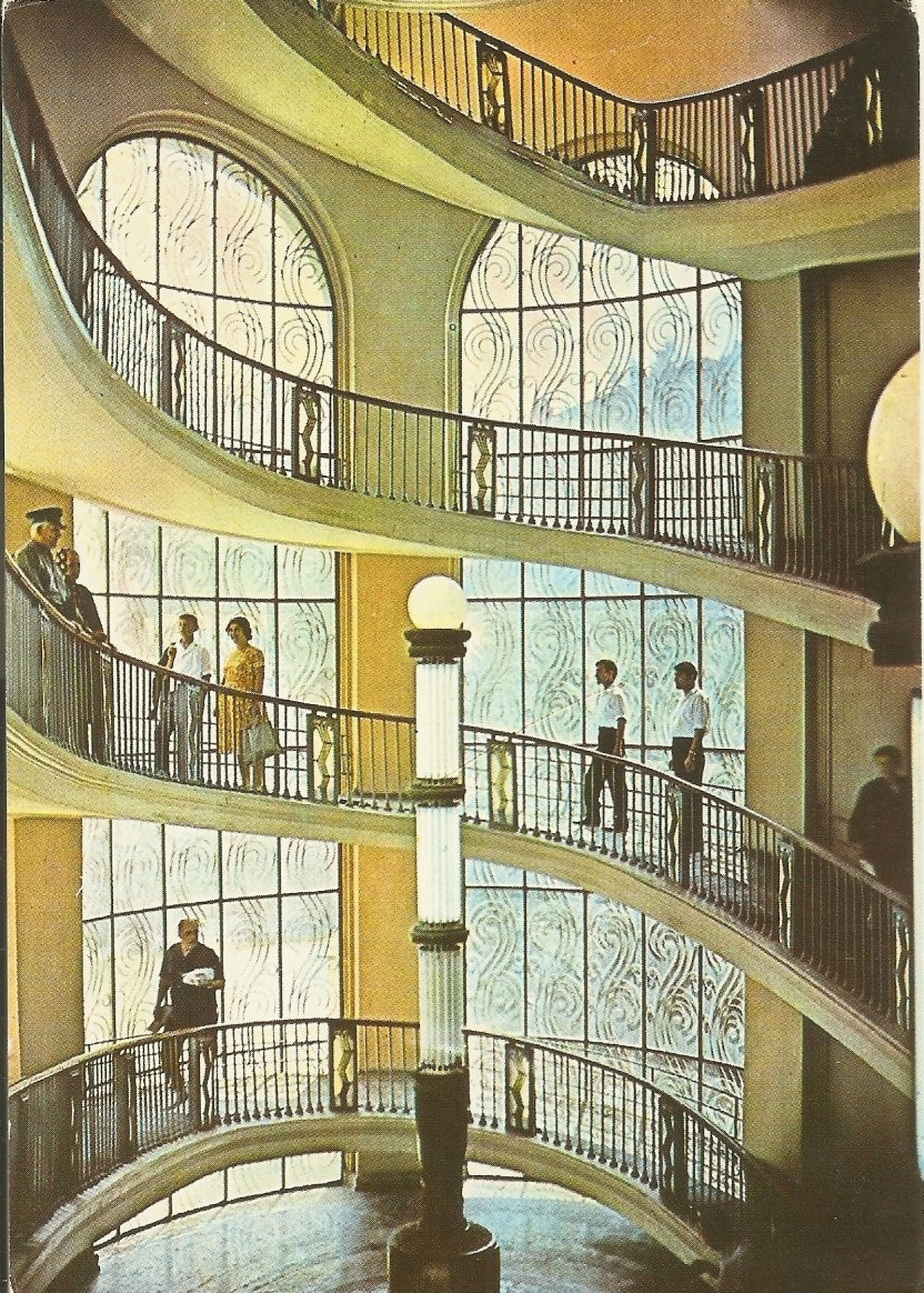Georgia Project Lecture Series
Angela Wheeler:
Design Across the Iron Curtain: Modern Architecture in Soviet Georgia
Aesthetics, Art, and Architecture in the Caucasus Lecture Series
In cooperation with the George Chubinashvili National Research Centre for Georgian Art History and Heritage Preservation

After decades of neglect, the Soviet Union’s innovative postwar architecture finally seems to be getting its due, becoming a darling of the international design community. Poetic photographs of war memorials, metro stations, and bus stops grace coffee table books and social media feeds. This phenomenon presents buildings from the 1960s-1980s as exciting, rediscovered artifacts, contradicting historically negative stereotypes of Soviet design as either crass monumentalism or drab monotony. But one aspect of Western commentary remains unchanged: the reduction of all socialist architecture to a product of state control, a mere extension of propaganda that may happen, almost accidentally, to pass into the sublime. This narrative of a singular "Soviet modernism" maintains the Cold War ideology of the Iron Curtain, presenting diverse Soviet architectures as a hopelessly alien manifestation of the Communist Party agenda—an interpretation that leaves little room for individual artistic agency, regional differences, distinctive epochs, or global connections. Despite a growing number of publications and exhibitions showcasing the true complexities of socialist design, East European architecture as a whole often appears as an isolated anomaly in contemporary architectural histories, characterized by still-dominant truisms about mass produced uniformity, isolated architects, and overstated top-down control. Soviet Georgian architecture challenges these cliches and stands as a rebuke to the notion of modernist homogeneity. In it, one can see the tensions at the heart of the Soviet (and the modern) project: between individual and collective, standardization and authorship, iconoclastic and traditional, local and global. This talk will explore the work of postwar Georgian architects, demonstrating their connections to international design movements.
Angela Wheeler is an architectural and urban researcher at Harvard University, affiliated with the Graduate School of Design and the Davis Center for Russian and Eurasian Studies. Her research examines the development of architectural preservation in the Soviet Union during the postwar period. She has practiced and studied heritage management in the Republic of Georgia since 2010, where her projects have included an architectural guide to Tbilisi (DOM Publishers, forthcoming 2021), an exhibition of wooden mosques, and a national survey of small historic cities. Other interests include preservation pedagogy and its place in design curricula, Soviet postmodernisms, and urban ecology.
29 June 2021, 3:00pm
The event takes place online.
To participate please register in advance via Zoom:
https://zoom.us/meeting/register/tJUkc--grjkoE9cDQAc99dZUrnffKr1Dxzvj
After registering, you will receive a confirmation email containing information about joining the meeting.
Notice
This event will be documented photographically and/or recorded on video. Please let us know if you do not agree with the Kunsthistorisches Institut in Florenz using images in which you might be recognizable for event documentation and public relation purposes (e.g. social media).


